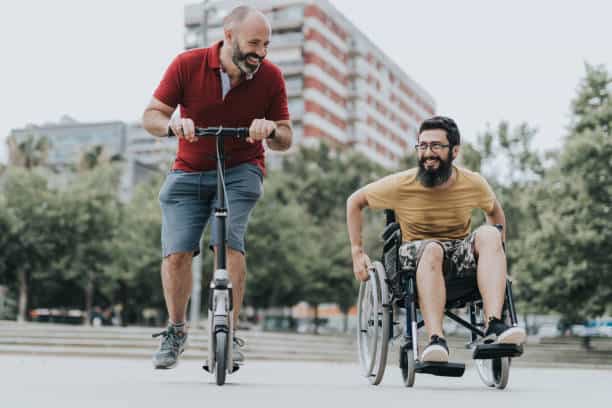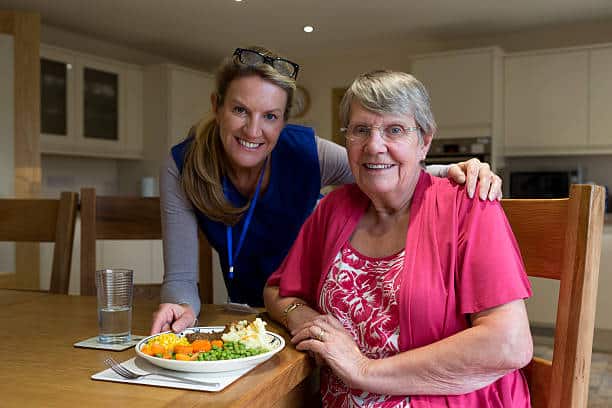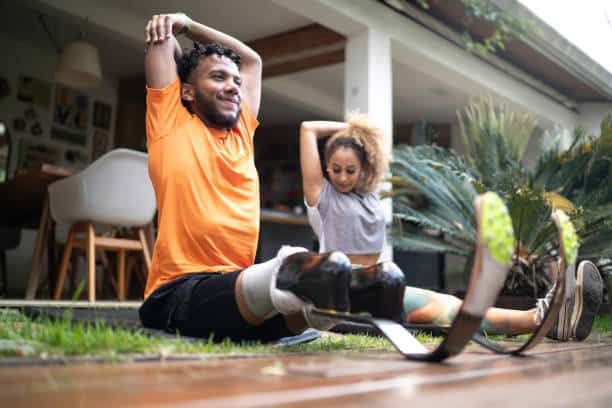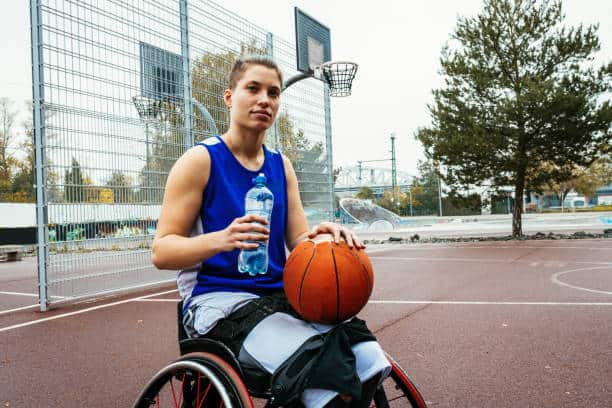A new challenge always keeps the brain kicking and the heart ticking. It does not matter how slowly you go as long as you do not stop. An active lifestyle is essential for a person with a disability. It can improve and influence your health and mood, but also helps you to feel more integrated with society.
Here, we present seven ways that will assist you in staying active and healthy with disability.
Learn to Accept your Disability
As well as the physical challenges you face, you may also experience mental or emotional barriers. The mental and emotional difficulties hurt more than the physical challenges. Instead of brooding over the things which you cannot do, concentrate on what you can. Make use of all the adaptive technologies and tools that are available.
Aids like a prosthetic, white cane, or even a folding electric wheelchair, can make your life easier, then use it. Don’t let the fear of stigma overpower you. Identify ways that will make you less dependent on others and will give you a sense of empowerment. Get complete awareness about your rights and the resources available to you. You will feel more independent and strong as you take charge.
Enjoy the Benefits of Being Outdoors
Researchers have found that there are many mental and physical health benefits to spending time outside. Anyone can boost their mood by being outdoors in the fresh air. Researchers have noted that even if you spend five minutes being active outside, it causes significant improvements in self-esteem, mood, and depression. A stroll on the electric wheelchair in a park or any natural outdoor area can rejuvenate you physically, emotionally, and spiritually. Breathing in the fresh air can replenish your body with positive attributes. Fresh air has the powerful capability to revitalize your emotions.
Additionally, sunlight has also proven to boost mood and reduce depression and anxiety. Exposure to sunlight and fresh air makes you think positively.
Engage yourself in Physical Activities and Do Regular Exercises
Physical activity plays a vital role in maintaining the health, well-being, and quality of life of any individual. It can help in controlling weight, improving mental health, and lowering the risk for heart disease. Moreover, it can improve mental health by reducing depression and anxiety. For people with disabilities, it can additionally help in supporting their daily life activities independently. Regular exercise can help in relieving your anxiety and depression. It can provide relief from stress and improve your sleep. Subsequently, as you get more physically fit, you’ll also feel more confident and strong. If your health permits, you can also opt for muscle-strengthening activities, such as adapted yoga or working with resistance bands.
Switch over to a Healthy Diet to Optimise Energy and Vitality
It is essential to have nutritious food when you’re battling physical limitations or health complications. Eating nutritious will boost your energy and promote vitality to participate in the activities you want and achieve your goals. While eating healthy isn’t always easy, especially if you’re struggling with a disability, even small changes can positively impact your health. Ensure that you have plenty of high-quality protein as it is essential for healing and immune system functioning. Some high-quality protein sources include organic, grass-fed meat and dairy, fish, beans, nuts and seeds, tofu, and soy products.
Make Stress Management and Sleep a Priority
Stress is very harmful to the human body and can worsen lots of symptoms. Therefore, it’s essential to find ways to manage your stress. You can manage stress by practising relaxation techniques and carving out a healthy work-life balance. Quality sleep is vital for flushing out toxins and protecting your brain. Most adults need 7 to 9 hours of quality sleep. You must establish a regular sleep schedule, create relaxing bedtime rituals such as taking a bath or doing some light stretches, and switch off all screens, whether the laptop or smartphone, at least one hour before sleep.
Listen to Your body and Do not Compare with Others
Our body constantly communicates with us by giving signals. It is up to us how we catch these signals and take remedial action. Exercises and physical activity, no doubt, are beneficial, but you must take care that you do not overexert your body. Practices should never hurt or make you feel miserable. If you feel dizzy while doing exercise, then stop doing exercises immediately. Give a call to your doctor if you are short of breath, develop pressure, chest pain, or break out in a cold sweat. Do not compare your exercise efforts with others with similar disabilities and not even with your past self. Comparing yourself will discourage you, and you will stop doing exercises.
Keep Yourself Hydrated By Drinking Plenty of Fluids
Our body needs to be adequately hydrated to perform at its best. This is taught in primary school globally, yet many people don’t get the fluids they need. When you’re dehydrated, you don’t feel good. Water also assists in flushing out waste products and toxins from the human body.
Final Word
As an individual with a disability, you can live a satisfying, meaningful, and productive life. The best thing would be to ignore the negative thoughts and work on yourself. With effort, you can overcome the challenges and lead an independent life.





